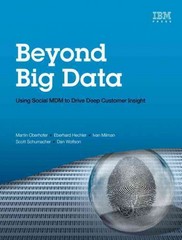Answered step by step
Verified Expert Solution
Question
1 Approved Answer
Global Cyber - Threats from AfricaCyberattacks originated from African economies have a worldwide effect. Gady ( 2 0 1 0 ) has put itmost strongly
Global CyberThreats from AfricaCyberattacks originated from African economies have a worldwide effect. Gady has put itmost strongly in his argument that AfricasCyber weapon of mass destruction WMDpotentiallyposes a direct threat to the world. For instance, in PCs used in Africa were infected withviruses and malware Gady Cybercriminals often use these unprotected computers to launchcyberattacks against targets all over the world.An upshot of the above is that businesses from industrialized countries categorize onlinetransactions originated from Africa as risky. An annual survey of CyberSource released in ranked Nigeria as the worlds riskiest country for online transactions. CyberSources similarsurvey showed that of the North American merchants rejected orders from Nigeria and didso for Ghana Kshetri Likewise, due to a large number of fraudulent clicks from Africa onInternet pay per click advertising, paidsearch companies such as Overture have implementedcontinental cutoffservices which reportedly disregard clicks on adverting originated fromAfrica KshetriMeasures at Various Levels to Address CyberThreatsSeveral initiatives have been launched and carried out at various levels to improve the continentscybersecurity landscape. The most important of these is improving regulatory quality.According to a November report of the African Union Commission AUC and thecybersecurity firm Symantec, countries in the continent had specific laws and provisions inplace to deal with cybercrime and electronic evidence: Botswana, Cameroon, Cte dIvoire Ghana,Mauritania, Mauritius, Nigeria, Senegal, Tanzania, Uganda and Zambia. Additional countries hadtaken at least some legislative measures, albeit limited Draft cybercrime laws had been prepared inmany other countries and bills had already been presented to national Parliaments in some of thecountries.As of November Kenyas new data protection bill was ready for review in the Parliament.On the plus side, the bill had many elements of Europes General Data Protection RegulationGDPR For instance, the bill requires organizations to inform users about why their data isbeing collected, for what purpose that data is used and how long the organization would store thedata. The bill also has a provision which gives consumers the right to request organizations to deletetheir data. In addition, it requires organizations to have a certain level of security standards forstoring data. Some analysts expressed concerns about the data localization provision, which makes itillegal to send Kenyanspersonal data outside the country. Critics have argued that if this provision isimplemented, the Kenyan economy will not be able to benefit from the economic gains that arisefrom crossborder data flows FrizellThere are also sectorspecific regulations. For instance, banking and financial institutions are themost affected sector. In October the Bank of Ghana issued a Cyber Security Directive forFinancial Institutions. The Directive requires active involvement of senior executives and the boardto strengthen cybersecurity. All banks in the country are required to appoint a Cyber andInformation Security Officer CISO who would advise senior management and the board oncybersecurity issues, and also formulate adequate measures to manage cyber and informationsecurity risks. The Central Bank of Nigeria CBN announced that it was developing a riskbasedcybersecurity framework for banks and financial institutions. The idea in this framework is toidentify the existing gaps and address them. In August the Central Bank of Kenya asked thecountrys payments service providers to submit their cybersecurity policies to the government.Many African economies have also strengthened enforcement measures. In South AfricasInformation Regulatory Authority started the investigation of that years biggest data breach in thecountry, in which more than million peoples personal data was stolen. The agency also madeformal requests to the concerned companies to provide explanations.Private sector cybersecurity initiatives have also become prominent. In early Serianuestablished what it calls a Cyber Immersion Centre in Nairobi. The Center provides an environment for firms to experiment and test their cybersecurity capabilities. It also provides educationalfacilities to develop cybersecurity professionals. A similar center was opened in Mauritius in midForeign multinationals have also worked with local organizations to help consumers understandcybercrimes and help develop ethical standards. For instance, Microsoft teamed up with ParadigmInitiative Nigeria PIN to educate Nigerians on cybercrimes and to create economic opportunities.The countrys EFCC announced in October that it shut down about websites associatedwith cybercrimes and
Step by Step Solution
There are 3 Steps involved in it
Step: 1

Get Instant Access to Expert-Tailored Solutions
See step-by-step solutions with expert insights and AI powered tools for academic success
Step: 2

Step: 3

Ace Your Homework with AI
Get the answers you need in no time with our AI-driven, step-by-step assistance
Get Started


